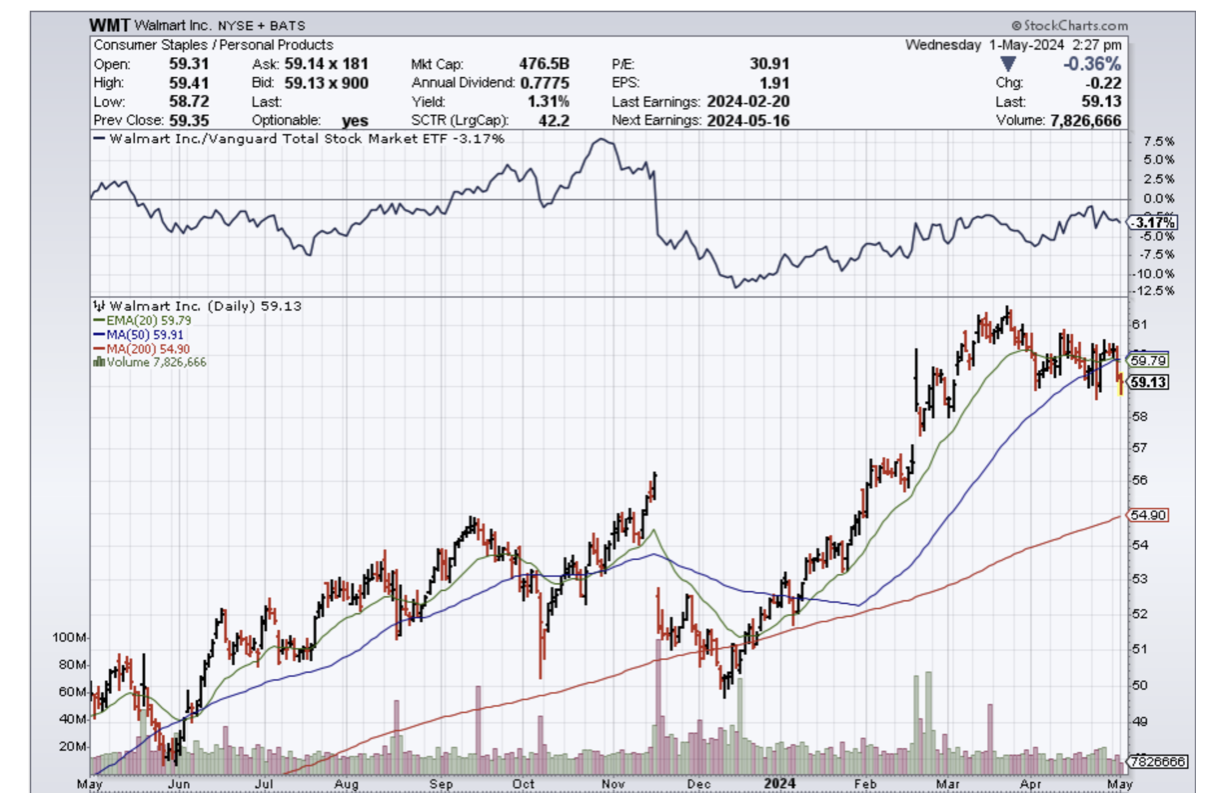The Big Retailer Diving Into Fintech
The takeaway I get from Walmart’s (WMT) push into fintech is that fintech is becoming mighty crowded in the short-term and this trend most likely won’t change anytime soon.
Walmart has been one of the big companies trying to beef up online commerce so it’s no surprise that wants to marry up this initiative with an in-house digital payment mode.
It could be that sometime in the near future that the likes of PayPal, Klarna, and Affirm who don’t have their e-commerce platform will be muscled out of this digital payment space.
Walmart’s in-house fintech startup One has begun offering buy now, pay later loans for big-ticket items at some of the retailer’s more than 4,600 U.S. stores.
The move puts One raises the question of whether major retailers need the help of outside payment apps.
Right now, Affirm, the BNPL leader has been the exclusive provider of installment loans for Walmart customers since 2019.
One is a mobile one-stop shop for saving, spending, and borrowing money.
Affirm helped the WMT generate $648 billion in revenue last year.
Ironically enough, offerings from both One and Affirm are available at checkout, and loans from either provider are available for purchases starting at around $100 and costing as much as several thousand dollars at an annual interest rate of between 10% to 36%.
Electronics, jewelry, power tools, and automotive accessories are eligible for the loans, while groceries, alcohol, and weapons are not.
One’s no-fee approach is especially relevant to low- and middle-income Americans who are “underserved” financially.
One could generate roughly $1.6 billion in annual revenue from debit cards and lending in the near term, and more than $4 billion if it expands into investing and other areas, according to Morgan Stanley
Walmart can use its scale to grow One in other ways. It is the largest private employer in the U.S. with about 1.6 million employees, and it already offers its workers early access to wages if they sign up for a corporate version of One.
Fintech players including Block’s Cash App, PayPal, and Chime dominate account growth among people who switch bank accounts and have made inroads with Walmart’s core demographic.
The three services made up 60% of digital player signups last year.
One has the great advantage of being majority-owned by a company whose customers make more than 200 million visits a week.
It can offer them enticements including 3% cashback on Walmart purchases and a savings account that pays 5% interest annually, far higher than most banks, according to customer emails from One.
One has access to Walmart’s sizable and sticky customer base, the largest in retail and that is worth a lot right there.
It’s entirely feasible that Walmart keeps growing its digital platform and in-house fintech app to somewhat look like a tech company in a few years.
I’ve written a few times about how Walmart is mimicking many of the best practices from the great tech companies and who knows, they might even employ a cloud division to take care of its own data and warehouse operations.
The day where outsourcing much of the data to software companies is very much over for big companies like WMT who are making deep inroads and investment into their tech prowess.
WMT’s stock has always been given that non-tech premium and I believe that will slowly change around as the growth rates start to pick up.
WMT is one of those American companies that are strongly positioned to do well in inflationary times and picking up all the $100,000 per year white collar professionals is a massive victory as they figure out ways to monetize this higher spend base.
This is a great company to buy on any dip and hold long term.


